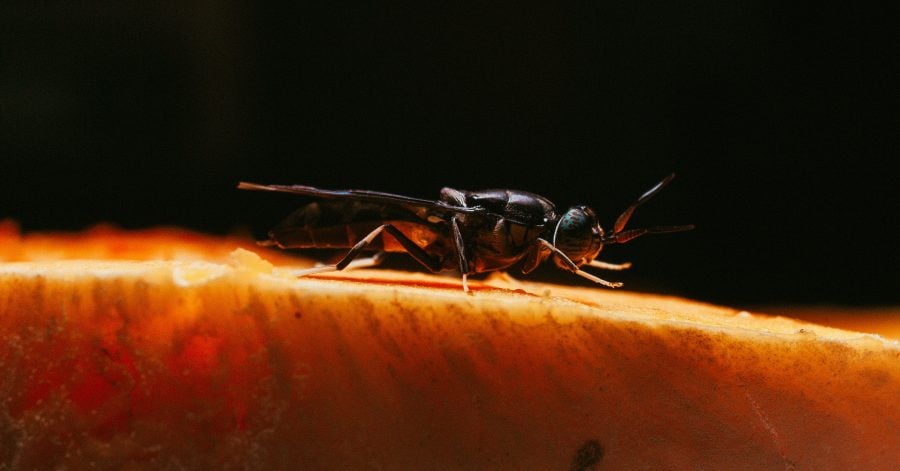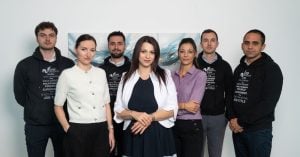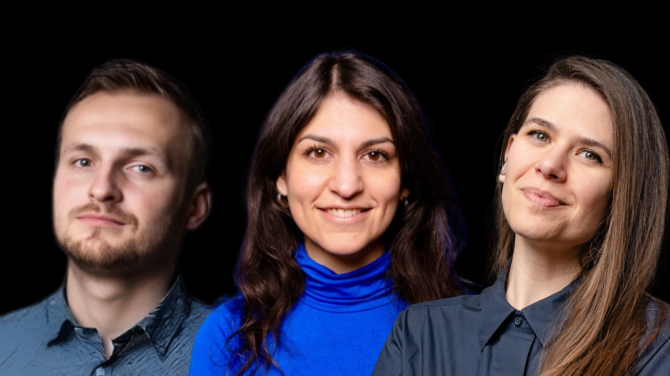The future of food is more and more influenced by nature. One innovation gaining prominence in sectors such as food production, animal farming, and food waste management is the use of insects to create products that increase food sustainability.
It is increasingly obvious that the way we currently produce and consume food cannot go on indefinitely. Our systems are doomed to collapse in the face of growing pressures on resources, in addition to resulting waste.
One of the biggest challenges identified by Bulgarian-based Nasekomo is the need for more protein to feed the increasing number of fish and animals farmed for consumption, while the availability of agricultural land is declining. In this context, the team turned to insects as a solution to lower the carbon footprint, resource use, and nutritional value of animal feed.
In July 2021, Nasekomo embarked on a journey to scale the production of insect-based sustainable and environmentally-friendly proteins with financing support from Innovation Norway, an instrument for supporting innovation and development of the Norwegian government. The overall budget is about €722K, of which the Norway grant supports 45% and the company invests the rest.
The Recursive talked to Nasekomo to understand how their insect-based innovation works and the impact expected from their newest venture.
Scaling up the insect industry’s green impact
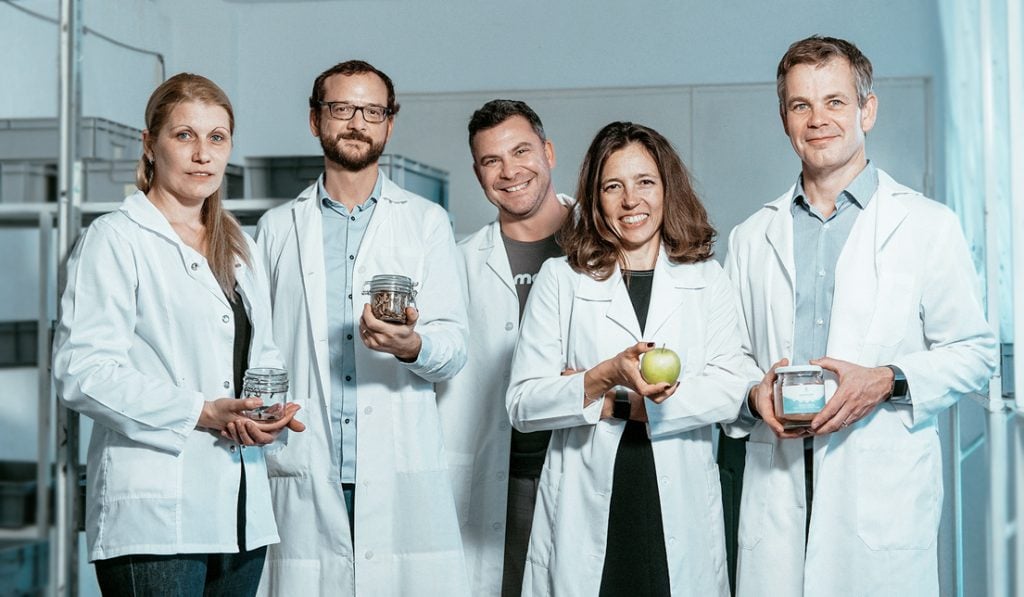
In short, Nasekomo produces three types of insect products with low environmental impact: animal farming feed, food for pets, and organic agricultural fertilizers. The key innovation powering their products is the use of black soldier fly in its larvae form to feed on organic agro-industry residues, which results in animal proteins. Moreover, the debris produced by the insect can be used as fertilizer. These processes follow the principles of the circular economy, stimulating a zero-waste production of animal feed and fertilizers products.
Nasekomo operates a demo plant in Bulgaria. As a rule, the company aims to build factors in close proximity to sources of feed for the larvae, thus saving CO2 emissions from long-distance transportation. In the future, the company also wants to position close to aquafeed producers, one of their key customers.
They aim to scale because this will enable to unfold the true potential of the technologies and will allow them to produce premium proteins for the feed market to meet the increasing demand. The new project sponsored by Innovation Norway, will help automate insect multiplication and the conversion of waste to food (Ed.note while not covering all processes) to enable industrial-scale production of insect-based products.
The company is in the process of scaling through an extended demonstrator facility with 10 times larger manufacturing capacities, near Sofia, which will be announced by the end of the year.
“Our team is investing in development of a set of insect-farming technologies that will be prototyped with intention for application in industrial-scale to match the scaling process of the company. The technologies will allow us to execute constant process and quality control, precise process management and enable efficient logistics to our customers,” shares Maria Aleksandrova, Project and Sustainability Manager at Nasekomo, with The Recursive.
As for the impact foreseen in the span of 6 years, Nasekomo aims to save 147K tonnes of wild fish from being used as meal in the aquafeed industry, as well as 105K tonnes of CO2 emissions by replacing traditional sources of protein with upcycled waste-based food.
The project is expected to bring additional economic and social benefits:
“It is expected to result in the creation of at least 12 new jobs for the Nasekomo’s extended demonstrator facility, which will be in proximity to Sofia. The new positions will be motivated by the implementation of the new technology lines, and since Nasekomo is a biotech company with a circular business model, they could be considered green jobs,” adds Maria Aleksandrova.
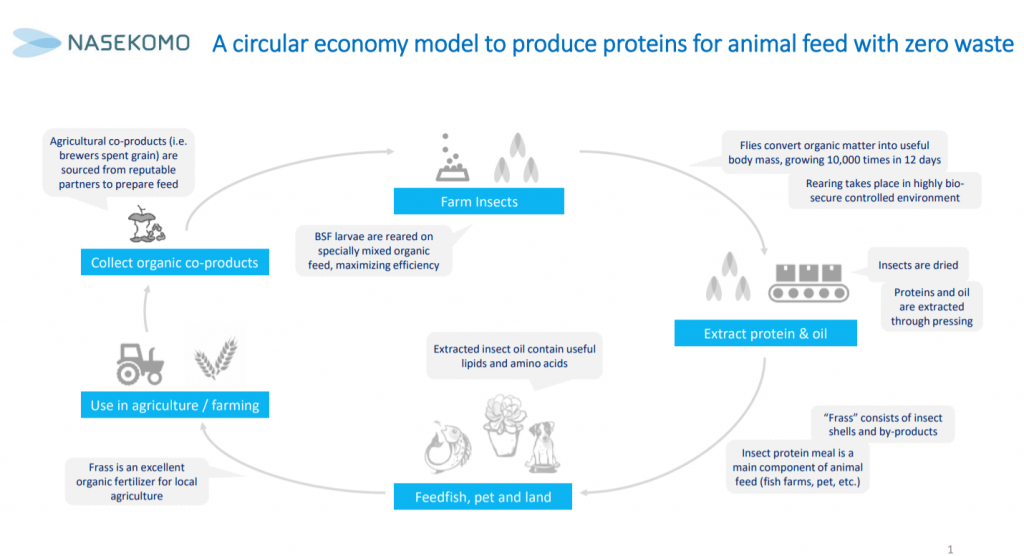
More insect-based innovations across Europe
Insect-based products for animal feed and organic fertilizers may not be mainstream at the moment. However, several other startups in Europe are working to make insects part of the answer that will allow industries to tackle food sustainability issues.
For instance, Greek-owned Better Origin, based in the United Kingdom, also relies in black soldier flies to convert food waste into animal feed through bioconversion. Better Origin deploys automated insect min-farms that are easily scalable for farmers. The X1 farm can produce up to five tonnes of insect protein per year from various bimomasses.
Through their AI-driven solution, the company claims to deliver 130% ROI, in addition to tackling waste and creating a circular food system. Moreover, the startup has created a network they call the “internet of insects” to allow exchanges between individual units and regional processing centers. So far, Better Origin received more than $5.8M in funding over 7 rounds, including Greek fund Metavallon VC, with a €700K seed round in 2019.
Elsewhere in Poland, HiProMine was established in 2015 with the goal of using insects – through the same process of bioconversion – as a bridge between plant waste from the agri-food industry and food products for pets, fish, and livestock. HiProMine has various innovation awards in its portfolio and has also attracted the attention of investor Giza Polish Ventures.
***For another interesting read on the future of food, check our piece highlighting key insights from food anthropologist Wendy Yared.***

